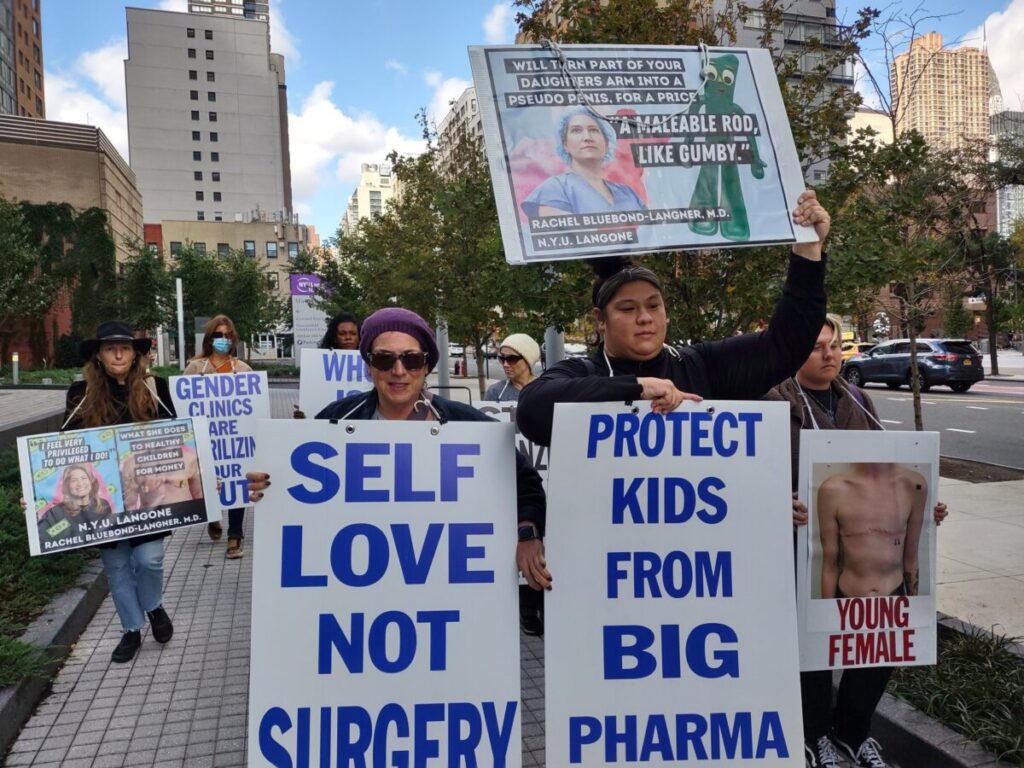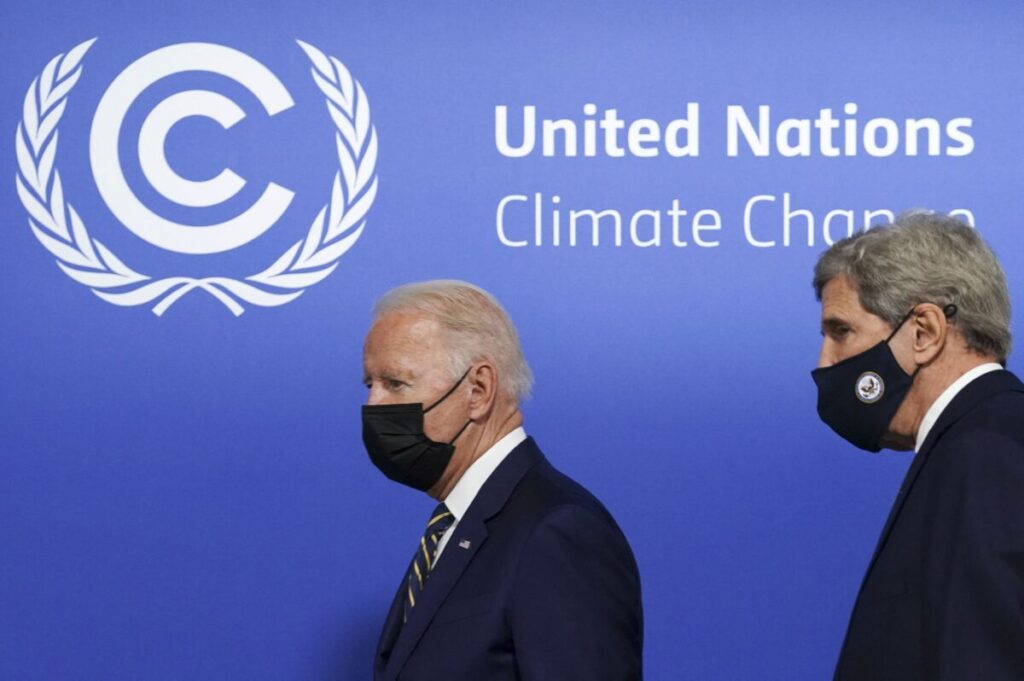She left the work, she says, because it was grooming children to accept LGBT identities and was funded by international agencies
NASHVILLE, Tenn.—Despite consumer opposition, companies believe backing transgenderism will win them more long-term cash because it has the approval of global regulatory power players, according to women’s rights activist Kay Yang.
The push is part of a philosophical movement aimed at allowing for customization of the human body with sex-change surgery, technological advances, and more, she said. And companies seek to be part of this fast-growing lucrative industry.
Yang speaks with authority on the push to build acceptance for transgenderism. She’s seen that cabal from the inside.
Until she left in disgust, Yang worked passionately as an LGBT activist, she said. Her employer received funding to push the acceptance of transgenderism across society. The money came from within the United States and abroad.
She’s speaking out now about her alarm as she watches a cavalcade of corporations launch marketing campaigns that celebrate transgenderism, despite customer outrage.
Sure, some companies are losing money now, she said. But they believe it will be worth it over the long term.
“That money, to them, is nothing,” Yang told The Epoch Times. Those companies are “being promised that, ‘OK, you might lose a little bit now. But you’ll make it in the new economy. And you’ll still be here.
“And all the businesses that don’t go along with this—we’ll make sure that they’re excluded.’”
It’s a coordinated effort, a conspiracy, she said, promoted by global organizations like the World Economic Forum (WEF).
And it’s why corporations, government organizations, and nonprofits have joined forces to push acceptance of transgenderism on a largely unwilling populace, Yang said.
‘Back to Reality’
Yang left LGBT activism behind, she said, when she realized the movement was leading children to accept certain sexual ideas and normalize the ideas of sexual acts.
It was grooming them, she said.
The horror of that hit her when she learned a transgender-identifying man in her circle of friends had molested a 16-year-old boy, she said. No one seemed alarmed.
She can’t disclose details publicly because of fear of retribution, she said. But she showed public records of his criminal charges to an Epoch Times reporter. The man’s name is on the sex offender registry, The Epoch Times confirmed.
This brought Yang “back to reality,” she said. She had to accept that LGBT grooming of children was real.
Though she’d been an advocate for LGBT causes, she became repulsed by them.
She’s not surprised to see American brands including Target, Bud Light, and Adidas celebrating transgenderism in their products and marketing, even after widespread consumer outrage.
The motivations behind corporations’ decisions to back transgenderism go deep, she said.
It’s motivated by a desire to help create a “Fourth Industrial Revolution” that merges human biology with manmade technology, creating endless possibilities for profit, she said.
Transgenderism as a widely accepted part of society furthers that push, she said.
“This is where they are planning to take humanity as a whole,” she said.
Monetizing the Human Body
Sex-change surgery, cross-sex hormones, and breast implants are just the beginning, she said.
Trying to “customize” the human body with technology is called “transhumanism”—going beyond being human.
Transgenderism teaches a fundamental separation between the soul and body, Yang said. Transgenderism argues that if a man’s soul or mind is female, his body can be customized until it appears female. The same goes for women.
This approach makes it possible to sell intensive body modification, Yang said. It’s fast becoming a global industry.
Even now, doctors are planning the first transplant to put a uterus into a man. They believe it will allow him to experience carrying a baby to term, when it would be delivered by Cesarean section.
‘Biohacking’ the Human Body
The transhumanist movement also promotes “biohacking,” the practice of putting technological implants into the human body, Yang said.
“Make your own body. Make your own gender. They’re priming those young people. They’re grooming them to accept that. The next thing you can do is implant something in your brain, implant something in your arm.”
Technology also will allow government control over reproduction and the population, Yang said.
“We’re being moved more toward this idea that reproduction, the birth of children, can happen without women and without a dad,” Yang said. “And they’re superseding the natural form of reproduction to the point where they want to wrest total control of how human reproduction occurs and have that be modified through the lab.”
It sounds like science fiction. But companies like Neuralink seek to connect the human brain to computers. Facebook’s Metaverse intends to create a virtual world that could host a billion people, Mark Zuckerberg wrote in a 2021 letter.
Companies like Cyborg Nest look for ways to implant people with technology to provide new senses and abilities. And transgender millionaire Martine Rothblatt is working on entirely separating humanity from the body, using software to create “mind files.” These files would hypothetically record a human mind without a brain or body.
The WEF declared in a video that by 2030, “You’ll own nothing. And you’ll be happy.”
It included some optimistic claims, such as new technologies able to fabricate replacement organs for people in need.
It also predicted that climate change would displace 1 billion people, and that “the U.S. won’t be the world’s leading superpower.”
Meat would become “an occasional treat,” the video asserted, and “Western values will have been tested to the breaking point, and people will rent everything and own nothing.”
That could apply to the human body, Yang said. With implanted technology, people may soon find their own bodies for rent.
The WEF has said this view is a prediction, not a goal.
Top-Down ‘Activism’
The promise that pro-LGBT companies will succeed in the future comes from a web of organizations, including the WEF, the United Nations (UN), and Business for Social Responsibility (BSR), Yang said. BSR is a business network of more than 300 companies dedicated to social justice causes.
The Epoch Times reached out to the United Nations Office of the High Commissioner, the WEF, and the BSR for comment. None have responded.
When Yang started her work as an LGBT activist in 2011, she had never heard of a “trans kid,” but believed in the transgender cause, she said. Out of fear of retribution, she asked not to disclose publicly the name of the New York LGBT center where she worked, but an Epoch Times reporter confirmed the details.
The group sent representatives to local schools and local businesses to deliver programs ostensibly to combat bullying. But the programs also were meant to encourage children to adopt LGBT identities, Yang said. The group received funding from the New York State Department of Health, she said.
“The more children who identified as LGBT, the more funding we would get,” said Yang. “Of course, more kids are going to start identifying as LGBT when we start going into their classrooms and teaching them about all of this language that they didn’t know about before.”
As the LGBT center began to discuss transgenderism with children and encourage children into transgender identities, “trans kids” started appearing, she recalled.
Her New York employer received funding from the Gay, Lesbian, & Straight Education Network (GLSEN), Yang said. Similar centers receiving similar funding are spread across the country, she said.
In 2011, GLSEN told activists that refusing to let boys into girls’ locker rooms was “hostility” against LGBT students, Yang said.
GLSEN partnered with the U.N. Educational, Scientific and Cultural Organization (UNESCO) in 2011 to create an anti-bullying program funded by the International Business Machines Corporation and the Arcus Foundation, Yang said. The Arcus Foundation is an international LGBT charity group.
This anti-bullying program used surveys to establish that LGBT-identifying kids were being bullied in school, Yang said. But the surveys were worded to gain the desired answers, and not to reflect reality accurately, she said.
“You’re cherry-picking,” Yang said. “You’re basically asking the kids at the gay-straight alliance already. They’re already indoctrinated to believe that they’re part of an oppressed class.”
After these surveys returned results that LGBT kids were likely to be bullied in school, the U.N. and activist groups used the surveys to lobby for international programs promoting LGBT activism, Yang said.
Her group indirectly received support and funding from UNESCO by way of GLSEN, she said. And in 2011, UNESCO embarked on a global campaign against anti-LGBT bullying, she said.
But it was all a push to bring LGBT conversations into students in schools, she said.
“They had already started laying the groundwork to establish that the way that they were going to get this into the schools is by saying, ‘This is how we make a safe school. And if you don’t have safe facilities for trans students, meaning if males aren’t allowed to come into the women’s and girls’ bathrooms, then that means your school is not a safe place.’”
In 2019, the WEF launched the Partnership for Global LGBTI Equality. The “I” stands for “intersex,” a term describing a rare genetic disorder resulting in genitals that are neither entirely male nor entirely female.
The partnership will enlist 50–100 WEF member companies to implement the United Nations LGBTI Standards, the WEF website states. It will also list “best practices” for presenting LGBT discrimination and encourage “new cross-sectoral and multi-stakeholder collaborations.”
Global Gender Agenda
The U.N. document also encourages companies to subtly or openly urge “LGBTI” inclusivity in the countries in which they operate.
This means developing policies that “respect human rights,” the document states.
The document explains that “human rights means not discriminating against LGBTI people, calling transgender people by their preferred gender names and pronouns, covering the cost of sex-change treatments for employees, allowing trans-identifying individuals into opposite-sex spaces, supporting the creation of LGBTI “informal staff groups,” the document adds.
Companies should force even unwilling employees to “respect the name, pronouns, terms, and gender used by the person concerned,” the United Nations document states.
The document suggests that international companies have three options when dealing with local laws.
They can have their local branch policy obey laws against LGBT agendas while keeping global policies pro-LGBT. Or they can pass LGBT policies within the company, but not push to change local cultures. Or companies can promote LGBT activism both within and outside the workplace, affecting the local culture.
Finally, the United Nations guideline tells companies it will be in their best interest to comply.
“There is a trend towards socially responsible consumption in many countries, where consumers identify with and reward companies committed to meeting environmental, labor, social, and human rights standards,” the U.N. document reads.
So if companies don’t support LGBT issues, they will struggle in a changing world as customers and investors reject them, the U.N. suggests.
The work of transgender activists is a profound threat to humanity because it threatens the integrity of the human body, Yang said. Once a soldier in that army, she’s now committed to fighting it.
“This is very, very dangerous.”





















































